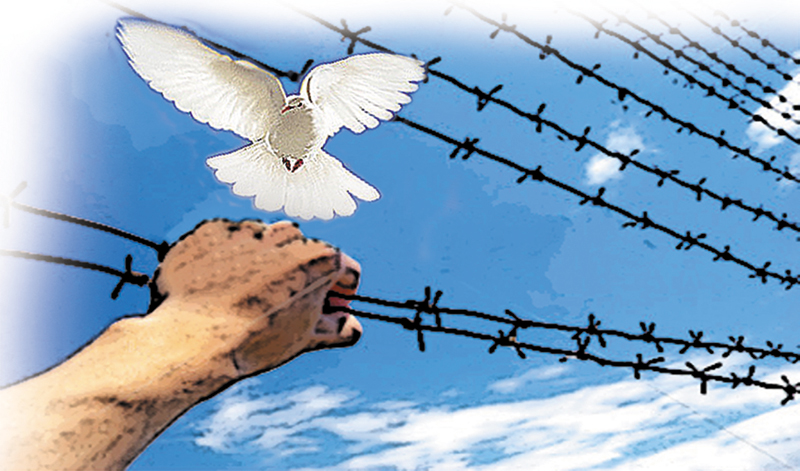Misyon Online - July-August 2011
A Royal Indian Wedding
By Kurt Zion V. Pala
A Joy That Is Rooted In A Well-Protected Heart
By Daisy Badilla
The author, a chemical engineer by profession, is currently doing doctoral studies at the Universtiy of the Philippines, Diliman, Quezon City. She is from Ozamiz City and is a member of the Teresian Association.
 I am fond of quotes. They are truly, for me, words to live by. Unconsciously, I get to memorize those lines that I like. My all-time favorite is the one on inner joy from St Pedro Poveda, a priest, educator, humanist, and founder of the Teresian Association (now in its 100th year), a Holy Association in the Church.
I am fond of quotes. They are truly, for me, words to live by. Unconsciously, I get to memorize those lines that I like. My all-time favorite is the one on inner joy from St Pedro Poveda, a priest, educator, humanist, and founder of the Teresian Association (now in its 100th year), a Holy Association in the Church.
St Pedro Poveda once wrote:
‘If joy is based on something external, it will come and go according to everyday events. But if joy is rooted in the heart and the heart is well-protected, there is nothing to fear. When events around us make us unhappy, we can turn our gaze inward to the depths of our soul and we will find joy.’
Missionary Butterfly
by Fr Maurice L. Galasa CICM
Fr Maurice L. Galasa CICM is from Bontoc, Mountain Province, in northern Luzon.
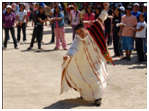 One beautiful morning, while on my daily routine of gardening, a beautiful butterfly with different colors, carried by a cool wind from the east, landed on my shirt. I gazed at this magnificent creature before it flew off, again heading westward. I noticed that it landed on one flower after another. This experience led me to reflect on the CICM missionary presence here in Zambia.
One beautiful morning, while on my daily routine of gardening, a beautiful butterfly with different colors, carried by a cool wind from the east, landed on my shirt. I gazed at this magnificent creature before it flew off, again heading westward. I noticed that it landed on one flower after another. This experience led me to reflect on the CICM missionary presence here in Zambia.
Zambia wasn’t my dream country so why did I end up coming here? It was a blow when I received my letter of assignment asking me to go to Zambia. What I had in mind was the USA or Japan thinking that after nine years of intensive studies, I should be in a first world country. Why suffer in a third world country like Zambia? I almost gave up my dream of becoming a missionary because the things I wanted weren’t granted. God was silent. But a simple prayer inside my room, reflecting on Mt 26:39, ‘My Father . . . not as I will, but as you will’, changed the whole story. I gathered again my shattered self, gaining confidence and hope in trying to see where the wind was leading me. The future in Zambia was unclear because of malaria, the Ebola virus, HIV, and CICM missionaries coming home. Maybe one step forward could make a difference and become a hundred steps of successes. The first step I took was to say with conviction, ‘YES! I go to Zambia’.
Troubled Times in Libya, a Journey of Faith
By Veronica Ugates
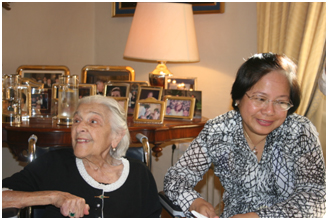 The news of civil unrest in Tunisia and Egypt had but started to impinge on our consciousness. My husband and I decided to stock up on rice, supplied mainly by Egypt, as we were sure the price would go up. We bought five sacks, 125 kilos. As a further precaution we bought about 20 dressed chickens, meat and canned goods. The freezer and kitchen shelves were full and we went on with our normal life.
The news of civil unrest in Tunisia and Egypt had but started to impinge on our consciousness. My husband and I decided to stock up on rice, supplied mainly by Egypt, as we were sure the price would go up. We bought five sacks, 125 kilos. As a further precaution we bought about 20 dressed chickens, meat and canned goods. The freezer and kitchen shelves were full and we went on with our normal life.
On 17 February the trouble in Libya started, first in Benghazi. We were apprehensive but hoped everything would be fine. Then classes were disrupted with parents taking their children out of school. Our daughter who worked in an international school reported until 27 February but no longer received her salary. Nobody was there to pay it.
Reflections on Jong’s Birthday
By Vissia P. Hernandez
22 February 2011
Sagada, Mountain Province
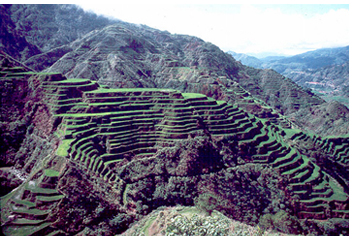 It is my brother Jong’s birthday today. As I am getting settled to do Centering Prayer (CP), my second for the day, I am thinking of this morning’s services at St Mary the Virgin Episcopal Church, here in Sagada, Mountain Province
It is my brother Jong’s birthday today. As I am getting settled to do Centering Prayer (CP), my second for the day, I am thinking of this morning’s services at St Mary the Virgin Episcopal Church, here in Sagada, Mountain Province
In his homily, the Anglican pastor drew a parallel between the widow Ruth in the first reading who was adopted by Judah, the tribe of Naomi, her mother-in-law, and Gaudan (Jong’s Igorot name) who was adopted as an honorary son by the people of Sagada for his pro bono services to the community as resident theater director, cultural events coordinator, museum curator, occasional village petition writer, teacher, friend, brother.
Pulong ng Editor
A Joy That Is Rooted In A Well-Protected Heart
By Daisy Badilla
 The author, a chemical engineer by profession, is currently doing doctoral studies at the University of the Philippines, Diliman, Quezon City. She is from Ozamiz City and is a member of the Teresian Association.
The author, a chemical engineer by profession, is currently doing doctoral studies at the University of the Philippines, Diliman, Quezon City. She is from Ozamiz City and is a member of the Teresian Association.
I am fond of quotes. They are truly, for me, words to live by. Unconsciously, I get to memorize those lines that I like. My all-time favorite is the one on inner joy from St Pedro Poveda, a priest, educator, humanist, and founder of the Teresian Association (now in its 100th year), a Holy Association in the Church.
St Pedro Poveda once wrote:
‘ If joy is based on something external, it will come and go according to everyday events. But if joy is rooted in the heart and the heart is well-protected, there is nothing to fear. When events around us make us unhappy, we can turn our gaze inward to the depths of our soul and we will find joy.’
If joy is based on something external, it will come and go according to everyday events. But if joy is rooted in the heart and the heart is well-protected, there is nothing to fear. When events around us make us unhappy, we can turn our gaze inward to the depths of our soul and we will find joy.’
These lines have often made me cry and still do. I feel grateful to God for His gift of inner joy to every person. Having been inspired by these lines in the nearly 30 years I have lived as a member of the Teresian Association, I am fully aware and in touch with such joy. I still feel happy or unhappy depending on events yet I dwell more in the joy which is permanent.
I got to know the Association through my chemistry teacher (a member of the Teresian Association) when I was a first-year college student at the University of San Carlos in Talamban, Cebu City, where I took Chemical Engineering. My initial participation in the Teresian mission was a good experience - being with the young children in the neighborhood on Sundays for some catechism activities. Within about a year of getting to know the Association and its mission, I deeply and strongly felt I was called (luckily in a manner I describe as ‘crystal clear’) to a life of total self-giving through this Holy Association. When asked why I decided to join the Association, I would say it was a decision to say ‘yes’ to God’s call for me. I cannot imagine saying ‘no’ to God’s loving invitation. It was an invitation for me to bring Christ wherever I am as Salt of the Earth: simple, quiet, hidden . . . but with its own distinct flavor – God’s own presence.
Daisy Badilla with Anabelle Badilla-Gubuan, assistant editor, during her visit to the Misyon office.
As I thank God for the inner joy and for His call, I also pray that we may be able to hold dear what is in our heart regardless of our particular vocation. I hope for a world where persons continue to have their hearts well-protected. I hope for a world where inner joy from each person radiates endlessly!
You may email the author at ddbadilla@yahoo.com and find her on Facebook.
A Royal Indian Wedding
By Kurt Zion V. Pala
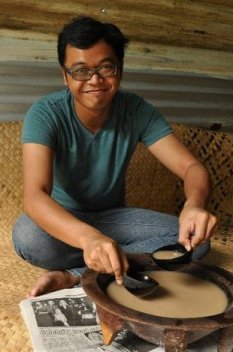
I had only been two weeks into my first missionary assignment here in Fiji when I witnessed an Indian wedding for the first time. Fiji is multicultural society – the population is composed of ethnic Fijians, Indo-Fijians, Chinese and others. Most of the Indo-Fijians are descendants of the girmitiyas, indentured laborers from India who came to work in the sugar fields of Fiji more than a hundred years ago. Within the Indian population here in Fiji, one can also find diversity in ethnicity and religion. Their ancestors came from different parts of India. There are three major religions practiced by the Indo-Fijians namely Hinduism, Islam and Christianity. Christians in Fiji comprise many groups, mainly Methodist, Catholic and Pentecostal.
Marriages between members of different ethnic groups are not common. On 30 April 30 I had the privilege of witnessing the wedding of an Indian couple, the bride a Catholic and the groom a Hindu. The ceremony lasted about two hours and was filled with many rituals, symbols, colors and scents. I realized through the process of enculturation that the wedding ceremony had been enriched and enlivened. The ceremony happened under a brightly decorated tent called a ‘mandap’ in Hindi on a stage.
We arrived early before everyone started coming to the venue of the wedding, the rented hall of an Indian college. The ceremony began with the sounds of the drums and cymbals announcing the arrival of the groom. The groom was welcomed and given some food and drink; then he was seated. The bride came in and the priest welcomed the couple. Both the bride and the groom looked very royal and beautiful. The priest, together with the parents of the bride and groom, then lit the diya, a camphor lamp used in religious ceremonies.
Everyone settled down and the opening prayer was said followed by the reading of the Gospel and psalms. A bhajan (religious hymn) was sung before the reading of the Gospel.
It was great to be able to witness everything up close since I was also busy taking pictures. The actual wedding rites began with the declaration of the couple’s intention and freedom to marry followed by the kanyadaan where, following Indian culture, the bride was handed over by her parents to the groom. It is a beautiful ritual that shows the value that Indian culture places on women. After this ritual, the couple circled the tent housing the altar seven times. The priest also placed incense in front of the Cross and questioned the couple on a different aspect of married life each time they completed a circle. This ritual is called the bhavar.
At the end of the bhavar, the couple exchanged marriage vows holding each other’s right hand (The left hand is considered unclean in Indian culture). The priest blessed the rings and the couple placed the ring on each other’s finger. The groom tied the tali, a yellow string, around the bride’s neck. Interestingly, the groom’s sister then placed a toe ring on the bride’s right foot, which is a South Indian practice.
Then the bride led the exchange of mala, a garland of flowers, three times. The exchange signifies that whatever one owns, the other also owns. The couple then exchanged seating places. As they were seated, the relatives tied strings of gold metal on the foreheads of the couple. After everyone had their chance, the groom took red dye with his finger and marked a spot, called the tika, on the bride’s forehead between her eyebrows, which is. The tika is a mark that signifies to others that the woman is married. Indians, especially from the Indian South, culturally practice this.
The priest then officially blessed the newly married couple. Finally, relatives and close friends were then invited to approach the married couple and shower them with flower petals mixed with rice grains to bless them. This ritual is called the pushpavrishti. A feast of curry and roti followed, which I had been looking forward to. All kinds of curry were served but without meat to respect the many Hindus who don’t eat meat, especially during religious functions. I loved the sweets and the paisam, made of milk and peanuts. This is one thing common thing to Indians and Filipinos, we love food!
Columban Fr Pat Colgan officiated at the wedding assisted by Master David Krishna who is also my Hindi guru-jii (‘respected teacher’). Fr Pat and the couple went through a lot of preparation before the wedding. Only a few couples ask for this kind of wedding because of the preparations and the complexity of the rituals.
There were many things I found quite different from my experience of weddings in the Philippines. The rituals that provided so much symbolism and meaning were new to me. I think it is important to observe all these rituals and symbolism because they provide the experiential element of the ceremony, which is important in our understanding of the sacraments. I’m sad that we in the Philippines have lost so much of our rituals and symbolisms. We have given in to the commercialism and Westernization of our faith and culture. I admired the Indo-Fijian couple for their courage in remaining faithful to their tradition and thank them for their invitation. It was truly a royal Indian wedding.
You may email the author at kurtzion@yahoo.com or find him on Facebook.
Missionary Butterfly
by Fr Maurice L. Galasa CICM
Fr Maurice L. Galasa CICM is from Bontoc, Mountain Province, in northern Luzon.
 One beautiful morning, while on my daily routine of gardening, a beautiful butterfly with different colors, carried by a cool wind from the east, landed on my shirt. I gazed at this magnificent creature before it flew off, again heading westward. I noticed that it landed on one flower after another. This experience led me to reflect on the CICM missionary presence here in Zambia.
One beautiful morning, while on my daily routine of gardening, a beautiful butterfly with different colors, carried by a cool wind from the east, landed on my shirt. I gazed at this magnificent creature before it flew off, again heading westward. I noticed that it landed on one flower after another. This experience led me to reflect on the CICM missionary presence here in Zambia.
Zambia wasn’t my dream country so why did I end up coming here? It was a blow when I received my letter of assignment asking me to go to Zambia. What I had in mind was the USA or Japan thinking that after nine years of intensive studies, I should be in a first world country. Why suffer in a third world country like Zambia? I almost gave up my dream of becoming a missionary because the things I wanted weren’t granted. God was silent. But a simple prayer inside my room, reflecting on Mt 26:39, ‘My Father . . . not as I will, but as you will’, changed the whole story. I gathered again my shattered self, gaining confidence and hope in trying to see where the wind was leading me. The future in Zambia was unclear because of malaria, the Ebola virus, HIV, and CICM missionaries coming home. Maybe one step forward could make a difference and become a hundred steps of successes. The first step I took was to say with conviction, ‘YES! I go to Zambia’.
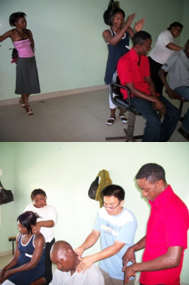 My experiences as a butterfly called by God and guided by the Holy Spirit started with a humble beginning of not knowing anything in a new country. ‘Stop, look and listen’ were my jumping board in gaining knowledge and asking people about unfamiliar things in order not to be ignorant. Children, the best teachers, made a great contribution to my integration process. They taught me how to interact properly in the community so that I would avoid cultural shock.
My experiences as a butterfly called by God and guided by the Holy Spirit started with a humble beginning of not knowing anything in a new country. ‘Stop, look and listen’ were my jumping board in gaining knowledge and asking people about unfamiliar things in order not to be ignorant. Children, the best teachers, made a great contribution to my integration process. They taught me how to interact properly in the community so that I would avoid cultural shock.
One example is Massage Therapy. For Zambians massage is like caressing and not a healing therapy. Sometimes the people understand massage as a form of witchcraft with the intention of killing someone. One of my parish involvements with the youth was teaching them how to massage for a livelihood. I tried first to explain clearly that massage is a form of therapy, a healing process of becoming relaxed, and not a form of witchcraft or something done with wrong personal motives. These therapies I taught were all new to them and because of their enthusiasm, it was a successful endeavour though some criticism came from elders in the community. I realized that my talent in massage was a useful skill in my ministry.
Our parish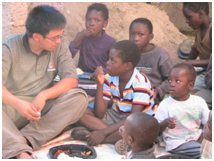 is in a compound similar to a squatter area in the Philippines. For Zambians a compound is a place of suffering where one expects to find thieves, prostitutes, carnappers and the like. Poverty is one of the factors that tempt people to participate in these activities. On house visitation to our parishioners I heard painful stories about the plight of children, especially abandoned ones. They eat once a day and sometimes in their fight for survival they drink water just to survive.
is in a compound similar to a squatter area in the Philippines. For Zambians a compound is a place of suffering where one expects to find thieves, prostitutes, carnappers and the like. Poverty is one of the factors that tempt people to participate in these activities. On house visitation to our parishioners I heard painful stories about the plight of children, especially abandoned ones. They eat once a day and sometimes in their fight for survival they drink water just to survive.
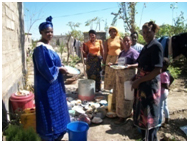 I couldn’t just close my eyes and pretend that this was OK. I tried to raise funds when I went back to the Philippines for my ordination. But looking for resources to feed these vulnerable children was a challenge. I was glad to raise PHP100,000. With a group of women in my parish, we started feeding the children and after three months had spent PHP38,000. I was wondering how to make the program self-sustaining. So we used the remaining PHP62,000 to construct a building for poultry and to buy things needed to raise chickens and pay the carpenter’s salary.
I couldn’t just close my eyes and pretend that this was OK. I tried to raise funds when I went back to the Philippines for my ordination. But looking for resources to feed these vulnerable children was a challenge. I was glad to raise PHP100,000. With a group of women in my parish, we started feeding the children and after three months had spent PHP38,000. I was wondering how to make the program self-sustaining. So we used the remaining PHP62,000 to construct a building for poultry and to buy things needed to raise chickens and pay the carpenter’s salary.
It was a successful endeavour because after six months we had an income of PHP80,000. We used this for the feeding program and an income generating project. These realities inspired me to affirm all who had raised funds for this missionary work. God used them to become part of His Mission. I realized that giving is not losing, but gaining God’s kingdom for the children when they say ‘I am satisfied, I am full, I am happy’. These were the fruits of giving and sharing of people at my ordination. They were part of this ministry and an encouragement for us to give hope to the hopeless. They cannot come to Africa to share their joy but they are there morally, financially and spiritually, supporting God’s mission through us whom they send to be with the Zambian people. This is important for those who need help and we thank all who contributed. We remember your good deeds for the mission of Zambia!
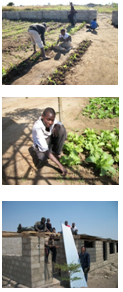 I tried to bring the children to an environmental consciousness through organic farming. I convinced some children to help me in the garden. We collected animal manure for the corn field. They asked me why we used manure and not fertilizer. I explained that fertilizer destroys the fertility of the soil and can make us sick. The company from which we buy the fertilizers is the same company from which we buy medicines. We are helping them to become rich. Teaching these children to touch the soil is teaching them to become one with mother earth, the soil that is the source of food we need to survive. A child who cultivates the earth will know how to live in the future. At the end of the day, we taught them to reap what they sow.
I tried to bring the children to an environmental consciousness through organic farming. I convinced some children to help me in the garden. We collected animal manure for the corn field. They asked me why we used manure and not fertilizer. I explained that fertilizer destroys the fertility of the soil and can make us sick. The company from which we buy the fertilizers is the same company from which we buy medicines. We are helping them to become rich. Teaching these children to touch the soil is teaching them to become one with mother earth, the soil that is the source of food we need to survive. A child who cultivates the earth will know how to live in the future. At the end of the day, we taught them to reap what they sow.
We also teach the children how to become resourceful and self-reliant through carpentry. Some of the out of school youths helped me build a chicken house. I taught them how to grip the hammer when hitting a nail, how to handle a saw properly, how to mix cement and how to place roofing sheets. Though the project isn’t perfect, at least they learned and it also strengthened our friendship.
My life is like a wondering butterfly flipping from one place to another guided by the direction of the wind and attracted to different flowers. As a missionary, I was directed by the inspiration of the Holy Spirit like a wind to another country and was attracted by these vulnerable children. The butterfly gives life to a flower as we missionaries give life and hope to different people who need us.
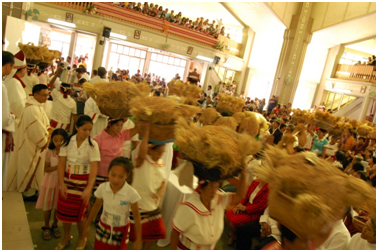 I realized that it is possible to be here in Zambia in spite of my homesickness, amoebiasis, malaria and scorpion bites because of Jesus who empowers us by his words of life. The worst sickness a missionary can experience is ‘Being Afraid’. It closes other possibilities of encountering challenges in life. Courage is the efficient factor for surviving here in Africa because it leads to a positive response in faith to God. Like a butterfly, the missionary does not mind the danger that lies ahead but is always moved by the wind to go further helping in the pollination that brings new life into existence.
I realized that it is possible to be here in Zambia in spite of my homesickness, amoebiasis, malaria and scorpion bites because of Jesus who empowers us by his words of life. The worst sickness a missionary can experience is ‘Being Afraid’. It closes other possibilities of encountering challenges in life. Courage is the efficient factor for surviving here in Africa because it leads to a positive response in faith to God. Like a butterfly, the missionary does not mind the danger that lies ahead but is always moved by the wind to go further helping in the pollination that brings new life into existence.
My reflections deepened and brought me to John 15:5, ‘I am the vine . . . whoever remains in me and I in him will bear much fruit . . . without me you can do nothing’, an inspirational prayer in my faith journey as a ‘butterfly’. To be grateful is to recognize the love of God in everything He has given me my missionary ministry of love here in Zambia.
God Bless Us All!
You may email Father Maurice at mauricegalasa@yahoo.com
Our Hideaway
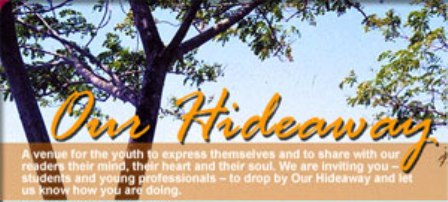
By ‘Laura’
The author is in 4th year college in Bacolod City, majoring in Information Technology.
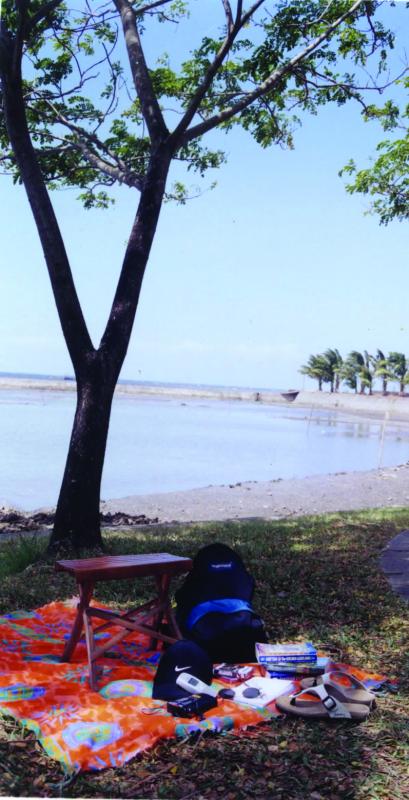 In my early years I could clearly tell how difficult it is to be born into a family where you long for love and care. Where there is only a little food that can satisfy your starving stomach. Where you can almost feel your world is spinning upside down because you can no longer stand the scarcity. Where you walk to school empty-handed, no ballpen, no trendy bags such as your classmates have, no paper or whatever.
In my early years I could clearly tell how difficult it is to be born into a family where you long for love and care. Where there is only a little food that can satisfy your starving stomach. Where you can almost feel your world is spinning upside down because you can no longer stand the scarcity. Where you walk to school empty-handed, no ballpen, no trendy bags such as your classmates have, no paper or whatever.
My mother had to scrimp from her small wage. I tried selling ube candy in grade school when I was just a Kinder II student. I can vividly remember how my classmates laughed at me because I used a Lady’s Choice Mayonnaise jar for my water. To make the humiliation even worse, the jar broke because I was too careless. How I was so envious of my classmates having everything they needed. If only I could, I would work more than my mother did every day and every hour of her life. I used to cry a lot in silence thinking how my life was a mess. Like any puzzled kid, I protested, ‘Why me?’
‘Childhood is the critical stage of being a child’ said a psychologist I once met. It’s when children perceive the world according to what their elders teach them. I was born into an ideal family. Though poor, we were happy and contented, with a father who served as the breadwinner, a mother who kept the house clean and took good care of her children, brothers and sisters who set a good example as helping hands in all of the chores. As one family, complete and happy, we went to church together. We used to pray together. I tend to be religious, too.
My family used to work together because we had this little business, selling homemade candies (butong-butong, bandi, salted peanuts and boiled peanuts). I was close to my father. I used to go with him knocking door-to-door, selling our homemade products. My father loved to plant vegetables. In fact, among us siblings, he always picked me to sell those crops around the barangay. I used to be his favorite. I think he influenced me with his business-minded personality, I was just seven, young and intelligent.
My birthday was always a significant day for my father. He always gave me presents. He was always a thoughtful and loving father to us, especially to me.
Until my 9th birthday . . . My father started to change. He started to get drunk, drowning himself in alcohol and neglecting his responsibilities as a good father and as a good husband to my mother. He then started to scold me, hit me with a belt at the slightest provocation. I don’t know why he started acting that way.
From then many questions were raised in my mind. I tended to take those events in my life like a bad dream or sometimes denied they were happening. It was hard to accept that as I woke up my dreams turned into nightmares. Our life became miserable to the point that there were nights when we would go to bed without eating, because my father did not bring us any food. Since then no evening would pass without my parents arguing, shouting at each other so loudly that even the distant neighbors could hear.
I started rebelling but didn’t let go of my faith. I was disappointed with the way my father turned out to be, but I didn’t have any choice but to look towards the future. I wanted to strive harder in the hope of having a good life.
My mother took whatever odd jobs she could get. I helped her work in the sugarcane field, pulling wild grass under the burning sun. I was just nine, but more than any adult twice my age, I already had a rich experience to be proud of.
I worked, starved, cried, suffered and persevered through my elementary years, high school and right now, college, hoping that each graduation could be an answer to my years and years of suffering.
Maybe one day I can bring home a sack of rice, a pile of wrapped bread and money from a regular salary. Despite my frustrations I am still holding on to Him, so that in the many moments I tend to have regrets, I still survive. I know God has prepared me to become strong enough to overcome the difficulties in my life.
Peace By Peace
The Culture of Peace Wears the Clothes of Justice
The clothes of justice are woven with patience and compassion, the help of the Master Weaver. The color of each thread is vibrant in its own right but together the threads take on the radiant glow of wholeness. Each color has what it needs to be strong and healthy and completely itself. Because they live side by side woven together in harmony, they enrich the beauty of each other. The clothes made of this fabric drape easily on the Body of Christ.
Master Weaver, we ask for your patience, compassion and imagination as we seek to weave with you the clothes of justice and create a culture of peace.
Columban Mission Education, http://www.columban.org/missioned
'It is good for us to feed the hungry...'
 Mindful of the commandment of the good Lord, my unworthy self declares to you that it is good for us to feed the hungry and the homeless with the fruits of our labor . . . If God’s grace does not uphold and nourish us through the poor, what should we do with all our works?
Mindful of the commandment of the good Lord, my unworthy self declares to you that it is good for us to feed the hungry and the homeless with the fruits of our labor . . . If God’s grace does not uphold and nourish us through the poor, what should we do with all our works?
St Theodosius of Kiev (+1074)
Levity
A characteristic of the great saints is their power of levity. Angels can fly because they can take themselves lightly.
G.K. Chesterton, Apologist (29 May 1874 – 14 June 1936)
Guidelines for liberating nonviolence:
- It starts with consciousness rather than action.
- It involves respect for the opponents.
- There must be appropriation of suffering rather than escape from it.
- It provokes tension but controls it so that it does not develop into a situation where nonviolence is needed.
- It is made possible by spiritual discipline rather than a political theology.
Bishop Bienvenido S. Tudtud of Marawi (22 March 1931 – 26 June 1987)
Surrender
Look up joyfully and say to the Lord in words or the desire of the heart: that which I am I offer to you Lord for you are it, and think nakedly, fully and boisterously that you are who you are without any questioning.
'Human ecology is an imperative'
‘It is good to remember that before all else, the person comes first. Humanity, to whom God has entrusted the stewardship of nature, cannot be dominated by technology and become its subject. This awareness should lead states to reflect together on the short-term future of the planet, given their responsibilities with regard to our lives and technology. Human ecology is an imperative.’
Pope Benedict to six new ambassadors to the Vatican, 9 June 2011.
Grasping pain so that the dove of peace can descend
 One of the most beautiful symbols of non-violence is one we had embroidered on our Mass-stoles. It is that of a human hand grasping the barbed wire, absorbing the pain of the barbs, so that the dove of peace can find a place. So it is in the spiral of anger and violence and killings: someone must be the first to stop; someone must grasp the sharp barbs with their naked hand so that the dove of peace can descend. And if you think for a moment, you will see that this is just what Christ did.
One of the most beautiful symbols of non-violence is one we had embroidered on our Mass-stoles. It is that of a human hand grasping the barbed wire, absorbing the pain of the barbs, so that the dove of peace can find a place. So it is in the spiral of anger and violence and killings: someone must be the first to stop; someone must grasp the sharp barbs with their naked hand so that the dove of peace can descend. And if you think for a moment, you will see that this is just what Christ did.
Seeds of Injustice, Fr Niall O’Brien (2 August 1939 – 27 April 2004) Father Niall was the founding editor of Misyon.
Thirty Days Alone With God
By Martin Koroiciri
The author is a Columban seminarian from Fiji doing his spiritual formation year in Cubao, Quezon City. Here he shares something of his Thirty-Day Retreat, following the Exercises of St Ignatius, at the Jesuit Retreat House, Novaliches, Quezon City, last October-November.
They say that prayer is our conversation with God. If there was ever a phobia in my life, it was of prayer, one of seeing the reality of myself as I am, of seeing my imperfections and accepting them. On this particular journey of prayer I faced my fear. My journey with God is personal and intimate and confidentiality restricts me from sharing all that happened to me on this journey.
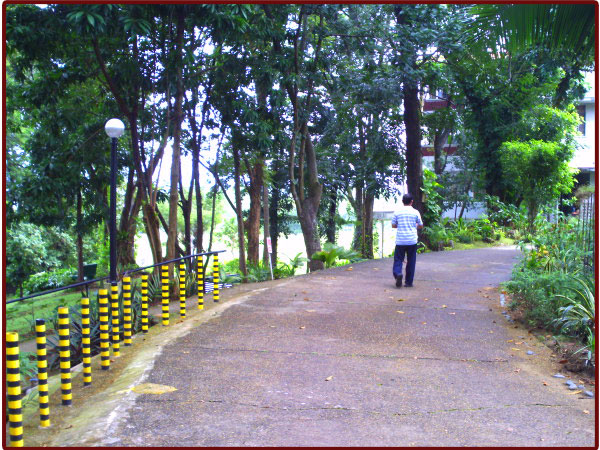
In Contemplation
But there is one significant event that amazed me at how God has unlimited ways of revealing himself to us, and how with just the right amount of attention and prayer, God showed himself to me in ways I could never have imagined.
It was a dawn like any other as I woke up and went for my morning walk. The
surroundings looked as they had on the day I arrived at Sacred Heart Retreat
House. Seeing the sun up in the full glory of its light, I decided to stroll to
the basketball court and then down the path to the Jesuit cemetery where I would
pray a decade of the rosary for the souls of the faithful departed. As I
approached the path towards the basketball court I heard the voices of nature:
of birds, bees, insects, and many other creatures that I could not recognize, I
heard the dancing of the leaves and branches, swaying in harmony to the rhythm
of life. Somehow my senses extended to accept all that was happening around me,
I had never felt this way before, seeing nature in its glory, like waves of
beauty, in various colors, untouched by human knowledge. I felt my heart pound
with excitement as I pondered all that was going on around me.
I began to pray, ‘Lord, the beauty of this earth never ceases to amaze me. How
much more will be your beauty when I see you in all your glory! Thank you for
all these gifts of nature, they truly show your beauty to me’.
Suddenly a sparrow flew past as I walked towards the cemetery. I thought of
the words, ‘Fear not, therefore; you are of more value than many sparrows’
(Matthew 10:31).
I reflected, ‘God has shown so much love to these creatures that they praise him
with all the energy they have, and they depend on him for everything. How much
more love does God have for us, who are created in his image and likeness!’
I went on further and sat on a bench near the cemetery. I thought about the words from Matthew and about my life, about all the moments of achievement and moments when I failed to live up to my expectations, moments when I noticed all my imperfections. Then I began to ponder about perfectionism.
I thought, ‘How can one become perfectly human? Is it even possible? Who has ever been the perfect human? Do I want to be perfect? Can I be the perfect human? If I can be perfect then why am I not?’
I felt tears roll down my cheeks as I cried. I felt anger for all the times I
had sinned, when I refused God’s love, when I decided to go my own way, thinking
only of myself.
If I held a mirror to my face, I would imagine seeing an ugly one, saddened by
my imperfections. In the midst of silence, I found something that I had never
thought possible to find in myself: I found desolation. With fear of what else
might lay before me on this journey, I turned to God and asked, ‘What else do
you have that could make me feel any worse than this?’ I could feel the heat on
my breath when I prayed these words. Slowly I stood and walked into the cemetery
thinking, ‘Why me? Why me? Why do you have to make me feel this way?’
I never got an answer until that afternoon when I sat in the dining hall having a cup of tea thinking about what had occurred earlier in the day. It suddenly struck me: my imperfections and my history are all part of me. I may be imperfect in some ways, but there are also parts of myself that are good. When I saw this I realized that if I was a painting, I would be a mixture of many colors, some dark as night, some white as light, some grayish, a picture perfected only through God’s grace. As Blessed Mother Teresa said, ‘I may be a drop of water in the ocean, but without me the ocean would be a drop less’.
You may email Martin at martinlkoroiciri@yahoo.com
For you comments, please visit Misyon Forum.
Troubled Times In Libya, A Journey Of Faith
By Veronica Ugates
 The news of civil unrest in Tunisia and Egypt had but started to impinge on our consciousness. My husband and I decided to stock up on rice, supplied mainly by Egypt, as we were sure the price would go up. We bought five sacks, 125 kilos. As a further precaution we bought about 20 dressed chickens, meat and canned goods. The freezer and kitchen shelves were full and we went on with our normal life.
The news of civil unrest in Tunisia and Egypt had but started to impinge on our consciousness. My husband and I decided to stock up on rice, supplied mainly by Egypt, as we were sure the price would go up. We bought five sacks, 125 kilos. As a further precaution we bought about 20 dressed chickens, meat and canned goods. The freezer and kitchen shelves were full and we went on with our normal life.
On 17 February the trouble in Libya started, first in Benghazi. We were apprehensive but hoped everything would be fine. Then classes were disrupted with parents taking their children out of school. Our daughter who worked in an international school reported until 27 February but no longer received her salary. Nobody was there to pay it.
I reported to work but office life had been disrupted as well with the workers in the oilfields returning to Tripoli, as brigands and bandits took the opportunity to loot the desert camps. The workers in Ghani Field were rescued by a British plane and flown directly to Malta, leaving their passports behind. I stayed until the end of February, as I became the conduit through whom some Filipinos got in touch with their companies in Tripoli and messages to those in the field were transmitted through me. Meanwhile at home we took precautions by strengthening the door jambs and sleeping in the living room so as to be ready at any time. We tried to go to church for Mass but found it full of evacuees and decided to stay and pray at home.
On 1 March the British lady I worked with decided to go home. I realized that I wouldn’t be an effective help to those I would like to extend assistance to as there wouldn’t be anybody to send any information to. So I decided to go on a ferry to Malta with my family. I also had a young daughter who needed to be protected.
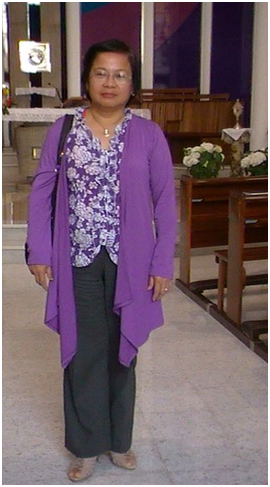 In Malta I continued to communicate with those still in Tripoli, trying to get them out. One dramatic rescue reminded me of a film, probably Raid on Entebbe, as the workers were ferried by oil tanker to Malta. When I met them they were so profuse with their thanks. As far as I was concerned it was part of my responsibilities to fellow workers in a similar predicament to my own. While in Malta we went to Mass in St Patrick’s in Sliema, run by the Salesians, and the Church of the Blessed Virgin in Rabat, run by the Dominicans.
In Malta I continued to communicate with those still in Tripoli, trying to get them out. One dramatic rescue reminded me of a film, probably Raid on Entebbe, as the workers were ferried by oil tanker to Malta. When I met them they were so profuse with their thanks. As far as I was concerned it was part of my responsibilities to fellow workers in a similar predicament to my own. While in Malta we went to Mass in St Patrick’s in Sliema, run by the Salesians, and the Church of the Blessed Virgin in Rabat, run by the Dominicans.
In one of our perambulations, we met a group of Filipinos. What drew me to them was that one of them was wearing clothes that looked full of bullet-holes. We had heard of a group who made their escape in a van that was peppered with bullets. This confirmed that story. They told us that about 16 of them, mostly Filipinos and one European, had left their devastated camp in a supply van. At the first military checkpoint they were asked to stop but the driver was so frightened he didn’t stop and so they were shot at with so many guns roaring but the driver just went as fast as he could. Inside the van they could hear the bullets thudding on the floor and didn’t know whether anyone was hit.
At the second checkpoint they were again asked to stop and the driver prudently did so. They were told to get out and sit in a circle in the sand. With so many AK-47s pointed at their backs they thought that this was the end. But the soldiers only removed the bullets on the floor of the van. It was then they discovered that one had been shot in the fleshy part of his arm and the European hit in the back. The bullet was resting against a rib and didn’t penetrate to do any damage. They arrived in Ras lanuf where the doctor attended to the wounded. This doctor wasn’t a devout man but having seen the van with bullet holes said he could hardly believe that only two were hit and very lightly at that. It was truly a miracle.
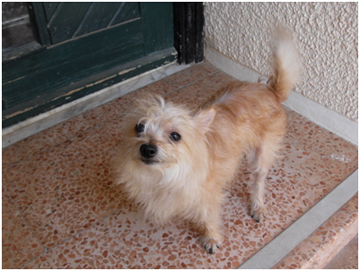 We had been a week in Malta and I discovered that my salary wasn’t forthcoming. As the paying bank was in Germany it was unfortunately included in the European Union sanctions against Libya. The decision to go home had finally arrived, as it was clear that we couldn’t stay in Malta without jobs and without funds.
We had been a week in Malta and I discovered that my salary wasn’t forthcoming. As the paying bank was in Germany it was unfortunately included in the European Union sanctions against Libya. The decision to go home had finally arrived, as it was clear that we couldn’t stay in Malta without jobs and without funds.
It was a decision I wasn’t willing to take without a fight. As I informed the DFA officers, who were not amused, I was over-rage, over-qualified, over-experienced and over-paid, and nobody in their right mind would employ me. Besides I was paying a PHP25,000 debt monthly for which I had mortgaged a piece of our property or it would be foreclosed. They were adamant that I go home to the Philippines as there would be government assistance available for us, of which I was most sceptical and I was proved right. The repatriated people I am in contact with are now complaining of financial problems and getting nothing from the government except for the initial PHP10,000 which would last at most a month for food supplies.
So I prayed hard to the Divine Mercy, repeating the three o’clock prayer over and over again whenever I woke up and at any time of day or night when I remembered to do so.
It so happened that I have a friend in Malta whom I met in 2006, a Filipina married to a Maltese. She asked me to accompany her to see their lawyer as she was trying to get her niece to Malta. As the lawyer and I talked he mentioned that he had an elderly aunt who needed care at home. Immediately I jumped at the chance to stay. As I later found out, this lawyer was one of the few people who could make this arrangement for me since apparently international law is strict on this matter, as I was a refugee. He communicated with the Philippine embassy in Tripoli and got me the chance I was seeking. I could stay in Malta for three months.
 How can one assess the power of prayers? I have always known that God answers them as I have proved on many occasions, but not as dramatically. It was a cause of wonder for me. It still is.
How can one assess the power of prayers? I have always known that God answers them as I have proved on many occasions, but not as dramatically. It was a cause of wonder for me. It still is.
We also learned that our house in Libya where we had stayed for 24 years had been ransacked but this didn’t bother us as we felt that the decision to leave was the right one. After all, the possessions we had accumulated aren’t worth any suffering we may have to endure. I am only sad that I’d left my beautiful pet behind, a dog so intelligent and so loyal, she always defended me from any possibility of harm however imaginary.
Meanwhile my husband and daughter had gone home to the Philippines. My husband decided to start a business as we can never know when the trouble in Libya will be over. But the length of separation took its toll on us both. We were constantly in disagreement and he was upset.
Thankfully, communication is easy with the internet and after so many daily messages back and forth, and prayers for more understanding, we finally got to a greater understanding of our needs, our dreams and plans for the future and our relationship.
The war in Libya has taught me a number of things: first, that indeed God answers our prayers, second, that with God’s help we can be stronger as individuals, third, that separation can strengthen our relationship because He is there as our support, and fourth, we can turn disaster into something positive with His guidance.
Your Turn

Dear Editor
I' m an avid reader of your magazine, Misyononline.com. When I feel troubled or feel a dryness in my faith I always open your magazine and re-read all my favorite inspiring stories from past issues. I found a friend in your magazine and send him an email when I have a problem or need advice. He is Fr Chris Saenz.
I'm from Bacolod City, More power to your magazine and may you publish many more inspiring stories. God Speed.
Rian Hollero of Bacolod City

